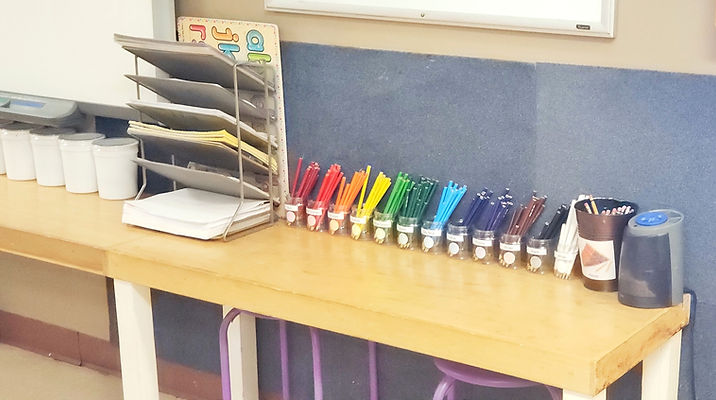
Pre-K Program
Pre-K Program Overview
Kids World's preschool program is licensed under the PA Department of Education. Children are required to be attend Kindergarten the following year in order to participate in the Pre-K Program. Here at Kids World, independent and cooperative learning opportunities guided by our skilled, nurturing teachers serve to strengthen social skills, equipping your child to enter kindergarten with confidence. Your child receives a well-rounded Pre-K education that emphasizes physical, cognitive, and socio-emotional development. Daily routines feature fun yet challenging math, science, social studies, literacy, and physical activities. Immensely inquisitive, your "pre-ker" expresses his or her newfound independence through investigation, exploration, and burgeoning decisiveness. Within the comfort of an enclosed classroom, our skilled teachers offer your child plenty of choices concerning equipment and materials, emboldening little ones to learn with confidence.
Research indicates a strong oral vocabulary is the foundation of future reading success. Engaging activities and conversations with teachers and peers are the cornerstone of our Pre-K program. An environment rich with words, language, and print is key to promoting literacy. Your child will participates in interactive activities to increase phonological and print awareness, narrative skills, and letter knowledge. Writing skills are expanded with the help of the sight worlds exposed throughout the school year.
Four- and five-year-olds are full of energy and need active games and environments. You will see us building, dancing, painting and similar activities in order to help develop gross and fine motor skills, as well as coordination and concentration.
Here at Kids World we work closely with the parents. Secure relationships with parents and staff, observance of healthy adult behavior, and early positive social interactions influence socio-emotional development. Opportunities to gently collaborate with peers and express emotions verbally rather than physically are beneficial to effective socialization.
A high quality pre-kindergarten education can not only prepare children for kindergarten but also help them reach their full potential in life. Rich environments, stimulating experiences, and responsive interactions help to develop prekindergartens’ emergent cognitive skills. With a firmer grasp of logic and language, children at this age benefit from creative, theme-based activities that prime them for the next stage of learning.
The PA Keystone Stars define environment in a broad sense and take into consideration the arrangement of space both indoors and outdoors, the materials and activities offered to the children, the supervision and interactions (including language) that occur in the classroom, and the schedule of the day, including routines and activities. Each corner of our classroom has specific areas of interest including Math/Science, Library, Blocks, Dramatic Play, & Music/Movement that help develop and stimulate your child's interest. The room is full of fun, stimulating toys, while still providing a calm and soothing environment. Children are encouraged by an adult to care for the belongings and the environment in ways they can handle. Kids World creates and adapts the environment and activities to meet the children’s changing needs from day to day.

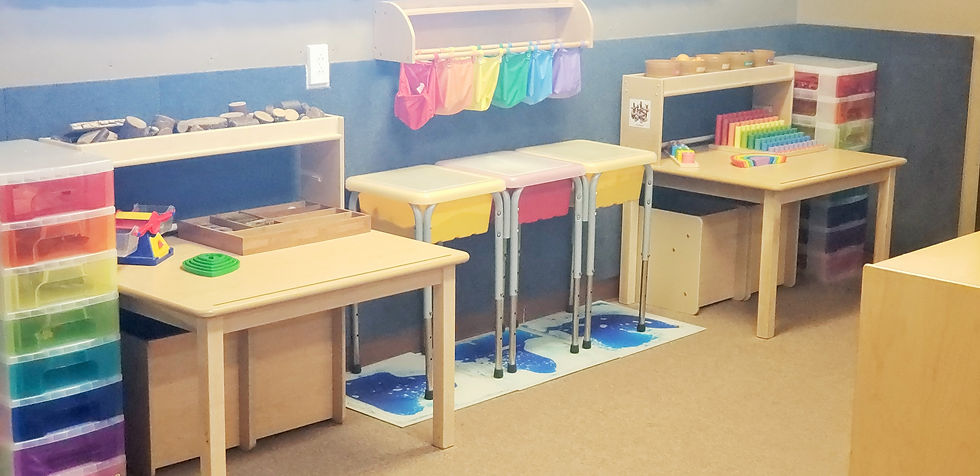
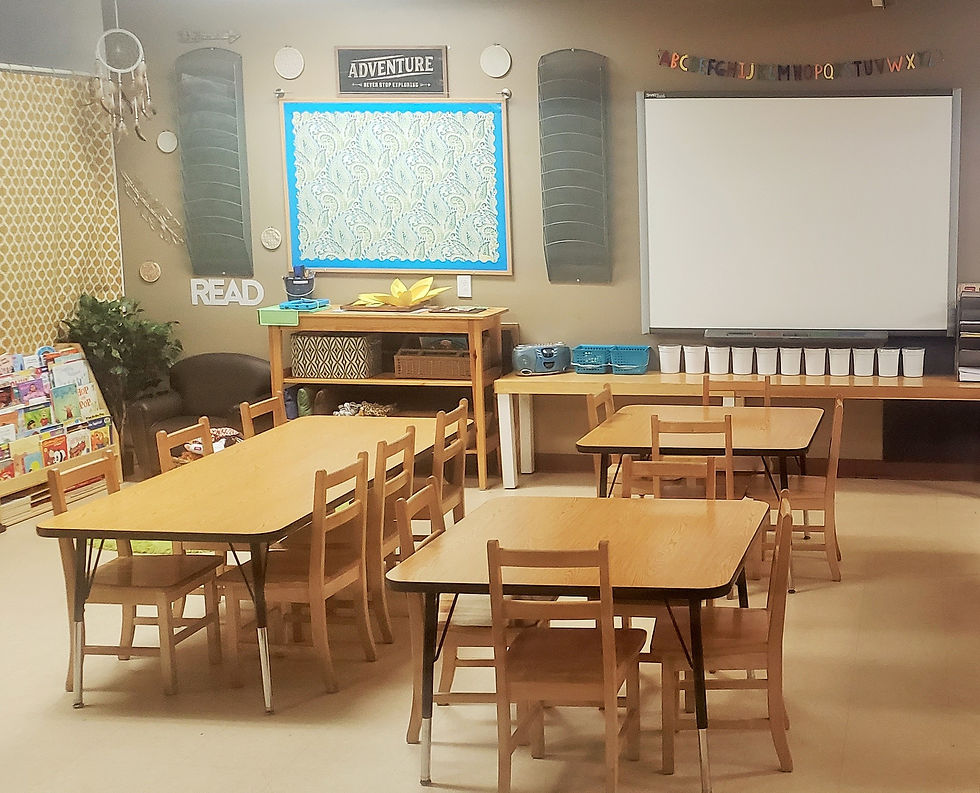
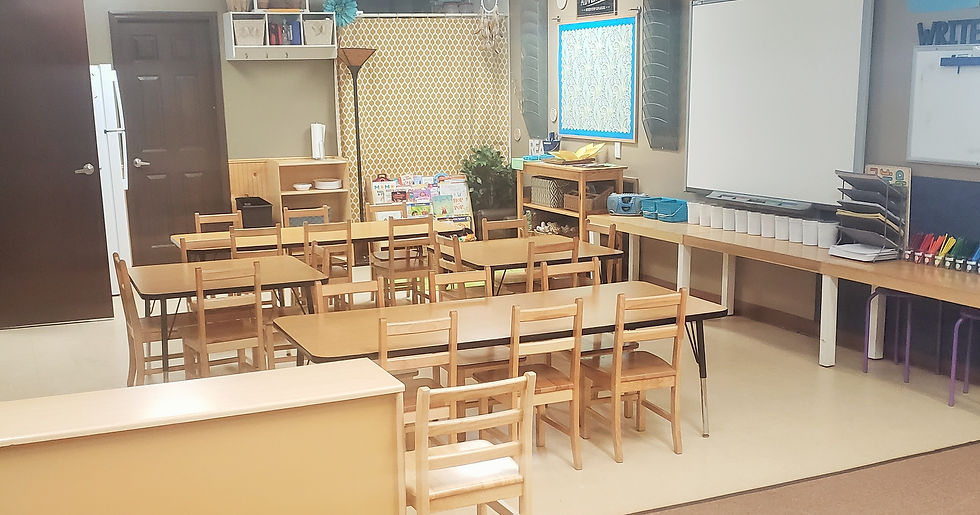

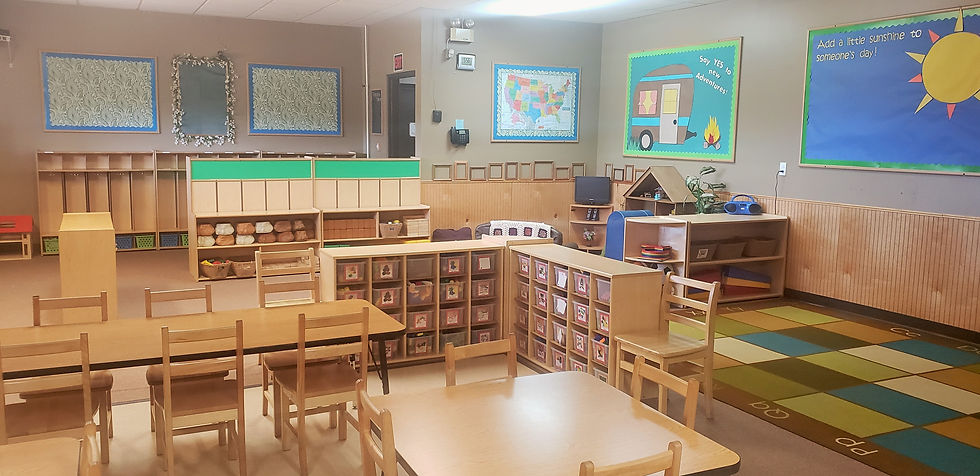
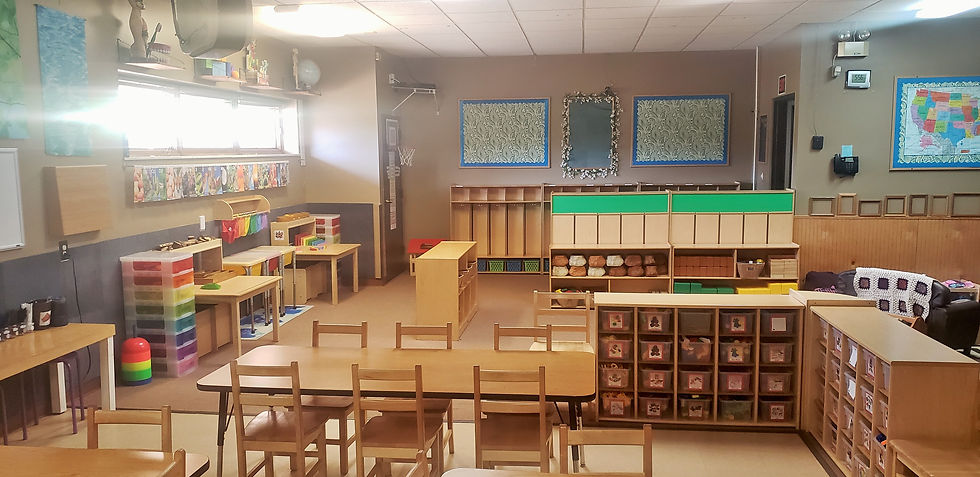
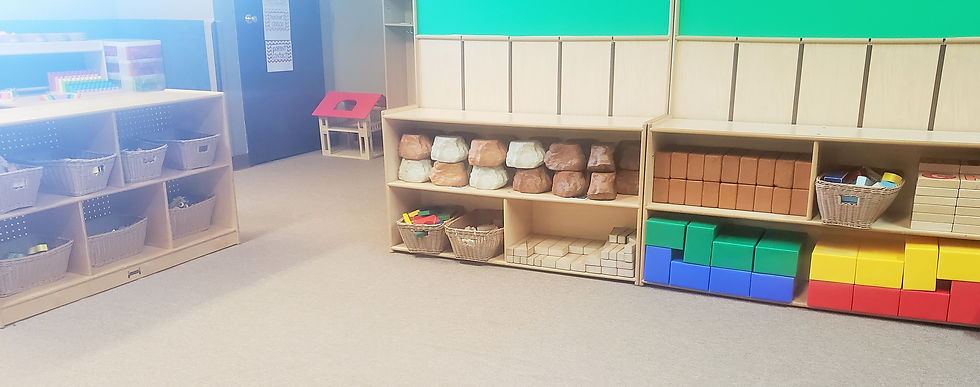
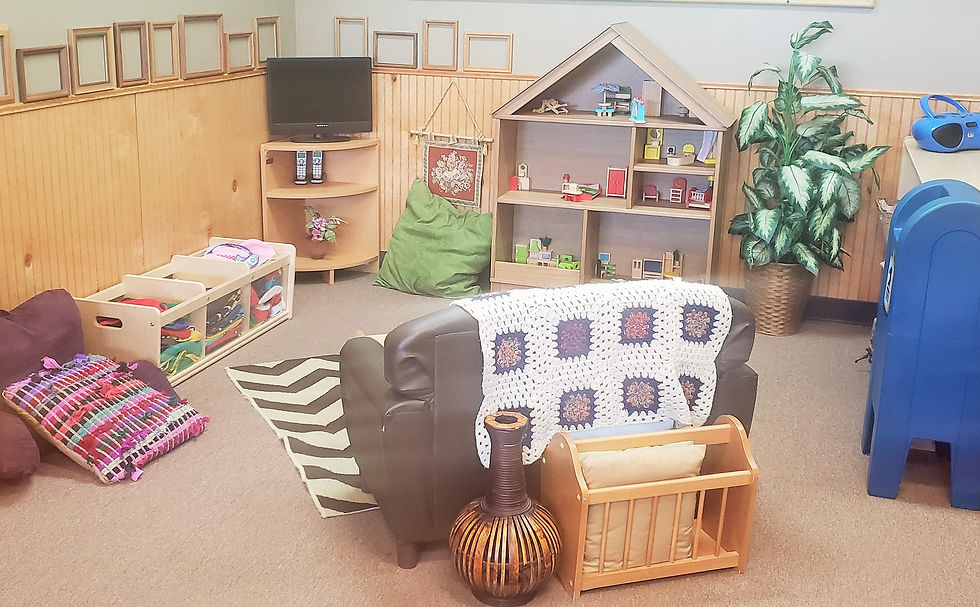
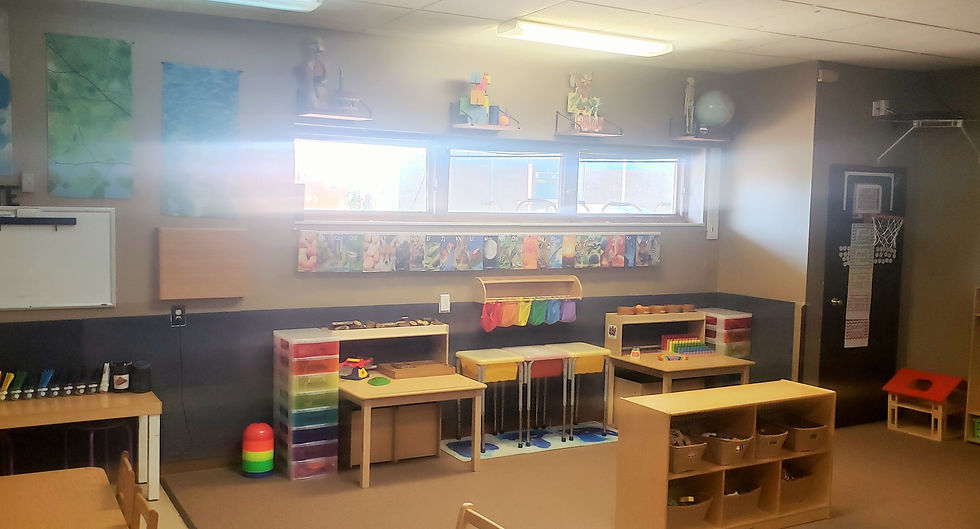
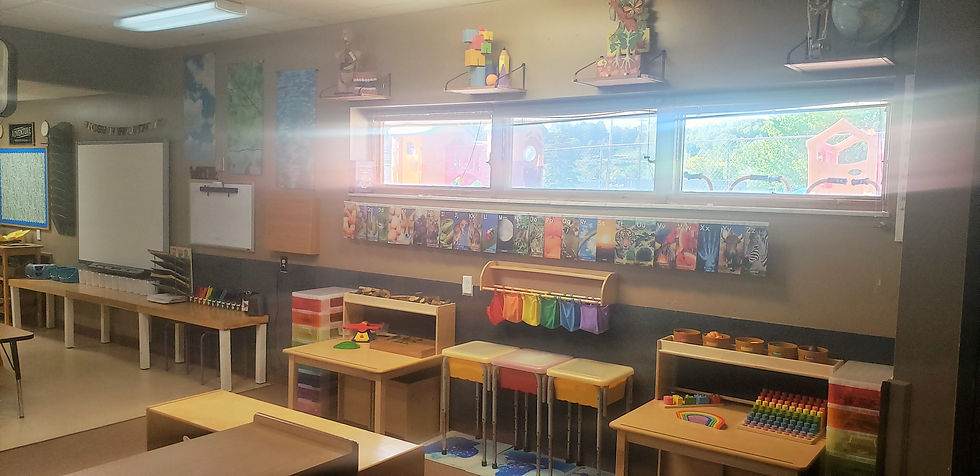
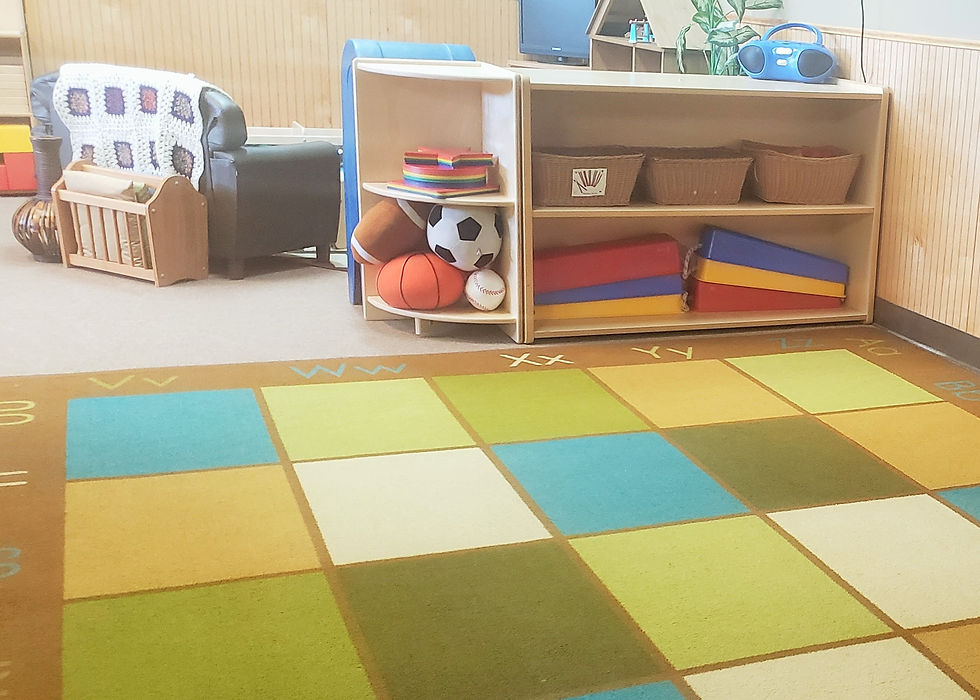












Pre-kindergartners : New Skills to Accomplish
-
Identify and name letters and sounds
-
Recognize his or her own name and write their name as a proper noun
-
Describe familiar people, places, things, and events with detail
-
Retell a familiar story with the beginning, middle, and end in order
-
Pay attention to a person or activity
-
Control impulses with few adult reminders
-
Follow multi-step directions
-
Complete challenging activities that require greater focus and persistence
-
Recognize the feelings of others and respond appropriately
-
Seek out other children during play time and build relationships with them
-
Play with other children showing the ability to resolve disagreements with little
help from adults -
Routinely share, take turns, and interact with other children in a respectful
and helpful manner -
Show dominance of a right- or left-hand preference
-
Independence with self-care skills such as undressing to use the toilet
and remembering to wash hands -
Use scissors to cut simple shapes and writing utensils to trace letters and
numbers with accuracy -
Connect number words and numerals to the quantities they represent
-
Begin to read sight words
-
Gain interest in sounding out letters/words to begin to read
-
Engage in pretend play alone or with others by taking on roles and using props
-
Participate in scientific experiments led by adults
-
Create detailed artwork that includes people, animals, and things
-
Craft detailed works of art using various materials like paint and modeling clay
-
Participate in a variety of musical experiences

Typical Day With Pre-K
6:30 - 8:00 AM Greeting the Children / Parent Communication / Breakfast / Free Play
8:00 - 9:00 AM Partner Bin Activities
9:00 AM Hand washing / Snack Time
9:30 AM Circle Time : Welcoming Activities, Calendar, Weather, Daily Focus (Letter, Number, Sounds, etc.)
10:00 AM Free Choice & Teacher Directed Centers : Art, Sensory, Language, Math, Fine Motor, Child Initiated Activities
Art and Sensory : Creative activities enhance emotional development, finger painting, cutting / pasting, etc
Language Skills : Emphasis on language development, puppets, games, books, rhymes, sounds etc.
Fine Motor Skills : Matching, classifying, exposure to numbers, writing
11:00 AM Hand washing / Music and Movement : Rhythmic movement, singing, listening, dancing, social interaction
11:30 AM Lunch
12:00 PM Quiet Activities / Partner Story Time
1:00 PM Playground Time / Gross Motor Skills : Children will engage in physical exercise and routine coordination, balance, tossing balls, etc.
3:00 PM Hand washing / Snack Time
4:00 PM Partner Bin Activities
5:00 PM Free Choice Centers : Large Group Games
6:00 PM Goodbyes / Hugs / Parent Communication
